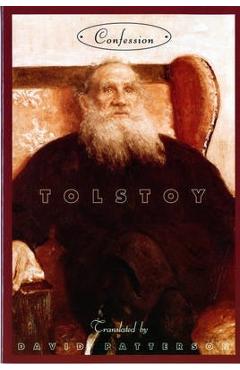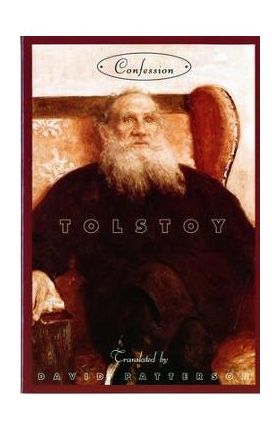Cosul este gol
Conectează-te ca să te putem notifica când primești un răspuns
In Confession Tolstoy poses the question: Is there any meaning in my life that will not be destroyed by my death?In 1879 the fifty-year-old author of War and Peace and Anna Karenina came to believe that he had accomplished nothing in life. Either of these magnificant novels would have assured Tolstoy's permanent place in the annals of world literature, yet his achievement was not enough to give his life meaning.Confession is an account of this spiritual crisis, marking a shift of Tolstoy's central focus from the aesthetic to the religious and philisophical. Marking a shift in his career from the aesthetic to the religious, Tolstoy's Confession relates this spiritual crisis, posing the question: Is there any meaning in my life that will not be destroyed by my death? It is a timeless account of an individual's struggle for faith and meaning. Marking a shift in his career from the aesthetic to the religious, Tolstoy's Confession relates this spiritual crisis, posing the question: Is there any meaning in my life that will not be destroyed by my death? It is a timeless account of an individual's struggle for faith and meaning. Marking a shift in his career from the aesthetic to the religious, Tolstoy's Confession relates this spiritual crisis, posing the question: Is there any meaning in my life that will not be destroyed by my death? It is a timeless account of an individual's struggle for faith and meaning. Marking a shift in his career from the aesthetic to the religious, Tolstoy's Confession relates this spiritual crisis, posing the question: Is there any meaning in my life that will not be destroyed by my death? It is a timeless account of an individual's struggle for faith and meaning. Marking a shift in his career from the aesthetic to the religious, Tolstoy's Confession relates this spiritual crisis, posing the question: Is there any meaning in my life that will not be destroyed by my death? It is a timeless account of an individual's struggle for faith and meaning. Marking a shift in his career from the aesthetic to the religious, Tolstoy's Confession relates this spiritual crisis, posing the question: Is there any meaning in my life that will not be destroyed by my death? It is a timeless account of an individual's struggle for faith and meaning. Marking a shift in his career from the aesthetic to the religious, Tolstoy's Confession relates this spiritual crisis, posi



